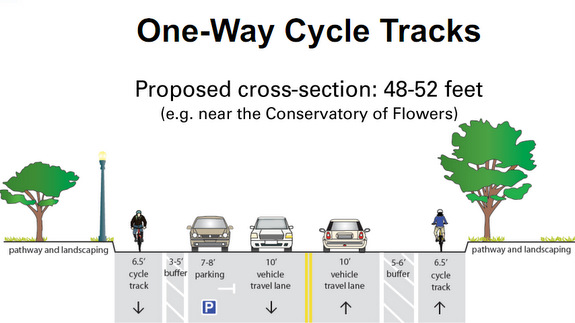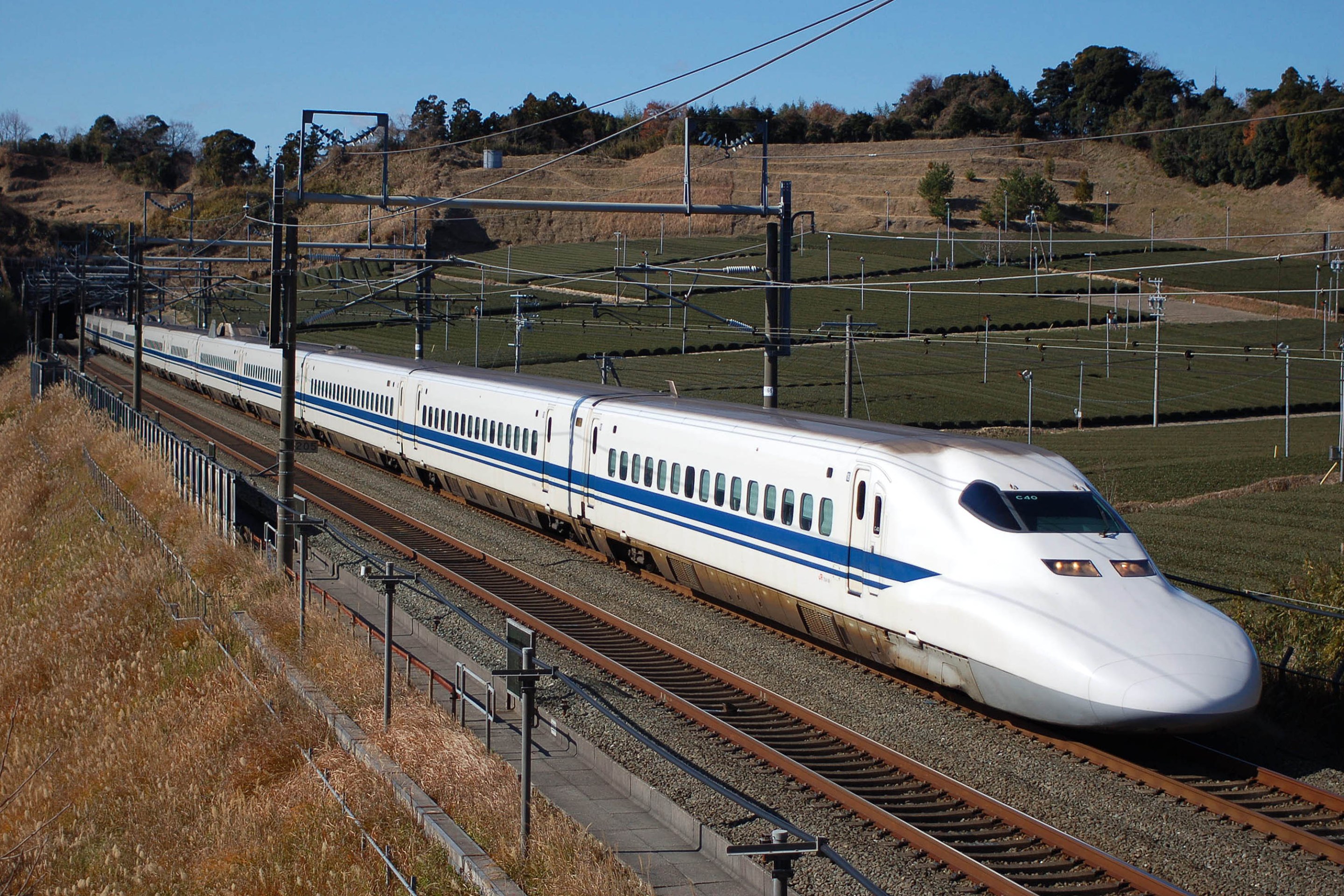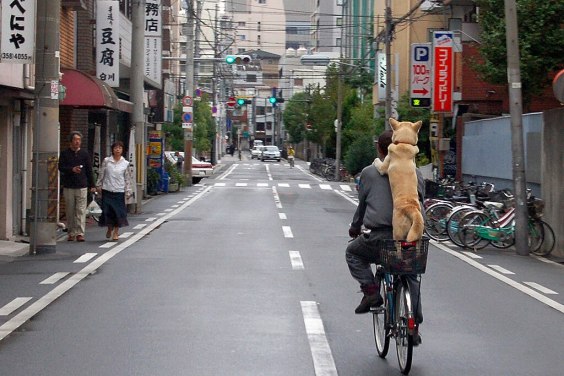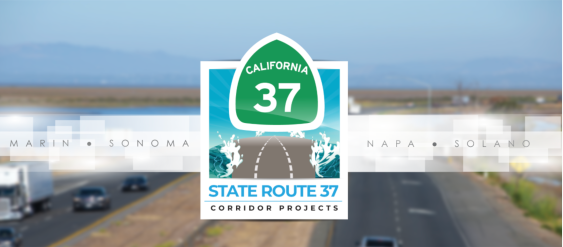
Anticipation is building for the arrival of San Francisco's first parking-buffered cycle track along the eastern stretch of John F. Kennedy Drive in Golden Gate Park this December. The project received approval from the Golden Gate Park Concourse Authority on Wednesday, and the final step in its approval will come at a Recreation and Parks Commission hearing on October 20.
"We are happy to see such strong public support for the proposal for a dedicated bikeway on JFK Drive in Golden Gate Park from key city leaders as well as hundreds of citizens who have sent letters of support," said San Francisco Bicycle Coalition (SFBC) Executive Director Leah Shahum. "We hope that the Recreation and Parks Commissioners will also prioritize safety and access in the park by making the street safer for the growing number of families, locals, and visitors who bicycle."
Recreation and Parks General Manager Phil Ginsburg testified at Wednesday's hearing in support of the project, and it also has the backing of District 1 Supervisor Eric Mar and San Francisco Mayor Ed Lee. Lee, who announced the project's December arrival at Bike to Work Day, sent a letter [PDF] to the Concourse Authority lauding the project.
"The city must work to improve our streets with innovative designs in order to attract more people to this healthy, fun, low-cost transportation option," wrote Lee in the letter. "Following significant public input, the SFMTA has developed designs for JFK Drive that will create San Francisco's first parking-buffered cycle tracks, providing a protected space for bicyclists and attracting those who are less comfortable riding in traditional bicycle lanes."
The design [PDF] proposed by the SFMTA features one-way cycle tracks on opposite sides of the road in each direction, separated from motor vehicles by a striped buffer of at least three feet along the entire length of the bikeway. A lane of parked cars would also provide a physical buffer where room is available. Safer conditions created by the project could invite many visitors who don't currently feel comfortable biking outside the weekend motor vehicle closures.
The project faces some opposition from the neighboring de Young Museum and the California Academy of Sciences, who have come out publicly against it in favor of preserving car parking.
Just 5 percent of the existing 1,900 free car parking spaces that line the roads of eastern Golden Gate Park would be replaced by the redesign, according to the SFMTA website. That number doesn't include the 800-space underground paid parking garage which has invited car traffic to congest the park and its adjacent neighborhoods since it opened.
The Academy's opposition runs in sharp contrast with its image as a beacon of sustainability. Its stated mission involves "raising public awareness about the urgent problems" of sustainability and "minimizing its own environmental impact," including in the area of transportation.
In spring of 2009, Academy of Sciences Chief Revenue Officer Don Skeoch even testified at a Concourse Authority hearing on local vehicle congestion that "Golden Gate Park is too car-friendly."
Despite the broad public support for the project and the dissonance between the Academy's recommendations and its stated commitment to sustainability, representatives from the two institutions are expected to testify at the final hearing.
The SFBC is urging supporters of the project to email Phil Ginsburg and to testify at the hearing on October 20 at 10:00 am at City Hall, Room 416.





